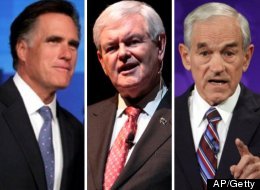Finance Minister Jim Flaherty is bending an ear to business, labour and average Canadians as he crafts a federal spending plan designed to create jobs, buoy the economy and make strides in slaying the deficit.
On Friday, Flaherty held the first in a series of cross-country consultations, a pre-budget roundtable discussion in Charlottetown. He also launched an online consultation process where Canadians can submit ideas on how the federal government should spend their tax dollars and manage the volatile economy.
“Budget 2012 will maintain our focus on jobs and economic growth while reducing the deficit and returning to balance in the medium term,” Flaherty said in a statement. “Today, and in coming weeks, I want to hear from Canadians on how we can advance the next phase of our Economic Action Plan to continue to deliver results on these priorities.”
Flaherty will hold four more roundtables with a wide variety of businesspeople, academics, think-tank and industry representatives, non-government representatives and labour groups. They’re part of a broader consultation process that includes meeting with provincial and territorial finance ministers in December. He also plans meetings with opposition finance critics and welcomes input from all MPs.
But opposition critics say Flaherty’s consultations are a charade because he rarely incorporates what Canadians want into the budget.
On Friday, Flaherty held the first in a series of cross-country consultations, a pre-budget roundtable discussion in Charlottetown. He also launched an online consultation process where Canadians can submit ideas on how the federal government should spend their tax dollars and manage the volatile economy.
“Budget 2012 will maintain our focus on jobs and economic growth while reducing the deficit and returning to balance in the medium term,” Flaherty said in a statement. “Today, and in coming weeks, I want to hear from Canadians on how we can advance the next phase of our Economic Action Plan to continue to deliver results on these priorities.”
Flaherty will hold four more roundtables with a wide variety of businesspeople, academics, think-tank and industry representatives, non-government representatives and labour groups. They’re part of a broader consultation process that includes meeting with provincial and territorial finance ministers in December. He also plans meetings with opposition finance critics and welcomes input from all MPs.
But opposition critics say Flaherty’s consultations are a charade because he rarely incorporates what Canadians want into the budget.















